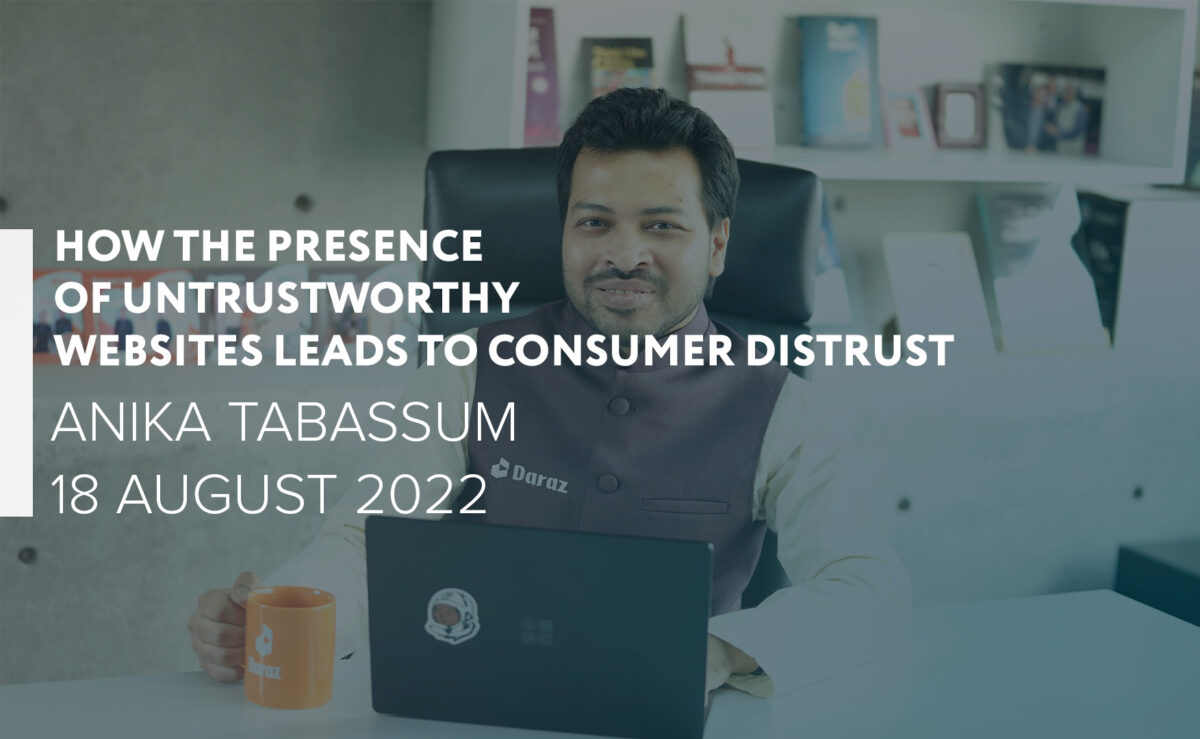Tajdin Hassan, Chief Marketing Officer at Daraz Bangladesh, on the future of e-commerce platforms in Bangladesh: “The presence of untrustworthy websites that lead to consumer distrust remains a major issue for us”
Interviewed by Commonwealth Chamber Correspondent Anika Tabassum.
Tajdin Hassan is a marketer by profession and completed his undergraduate from BRAC University, as well as his Executive MBA from IBA, University of Dhaka. Currently he holds the position of the Chief Marketing Officer at Daraz-Alibaba Group and has over fifteen years of experience in various fields.
He co-founded Torun Digital – a content platform for the youth. His projects have been highlighted in INMA International News Media Association, GXpress – An Australian Tech Newspaper and Global Ties U.S. In the midst of people suffering from this pandemic, Tajdin also co-founded Mission Save Bangladesh, a step that received appreciation from people all over the country and abroad. It’s an initiative he took to support underprivileged families affected by Covid-19.
Tajdin, who is also an Alumni member of the exchange program of the U.S. State Department, wrote three books for the youth. His first book, The Transition, was published in Ekushey Boi Mela, the biggest yearly book fair in Bangladesh. His second book on Personal Branding was published in 2020. His third book, “Think Like CEOs,” was recently released and has received widespread acclaim.
He has also been invited as a speaker to speak at different International Conferences in Chennai, Mumbai, Malaysia, and Bali along with BBC UK, Quint and other renowned brands.
Mr. Tajdin Hassan explored briefly the history of the e-commerce industry in Bangladesh in this conversation with our correspondent Anika Tabassum while identifying the obstacles that this industry has faced to date or may face in the coming years. He has also shed light on how the Commonwealth can help remove these barriers, among other things.
Q: In comparison to its early days, how has Bangladesh’s e-commerce industry evolved over the years?
A: Although the e-commerce industry began functioning in Bangladesh in the late 1990s, the local e-commerce industry started to grow as an entire ecosystem from 2012 as a result of widespread internet usage and Bangladesh Bank’s legalisation of online payments. Right now, the e-commerce industry has grown tremendously. Owing to technological advancements, increasing online banking facilities and payment gateways, the e-commerce industry now comprises a huge market worth BDT 8000 crore.
Q: In what ways did the emergence and growth of e-commerce have impacted Bangladesh’s economy?
A: Undoubtedly, the country has been experiencing a significant socio-economic development with the growth of e-commerce. The dynamic industry has contributed to an increase in employment while also expanding opportunities for businesses in other sectors, such as the delivery industry. By empowering SMEs, the industry is also helping to boost the country’s GDP. Furthermore, it has accelerated digital innovation within the country, resulting in significant technological advancements.
Q: What has been the impact of the Coronavirus pandemic on the e-commerce industry in Bangladesh?
A: Because of movement restrictions and safety concerns caused by the pandemic, online shopping has grown in popularity. Customers began to trust the concept of online shopping as they became accustomed to the convenience of having all of their necessities delivered right to their doorsteps. All of this has resulted in significant growth in the country’s e-commerce industry. When compared to the previous year, online sales have increased by 70 to 80 percent. For Daraz, our average daily orders more than doubled to around 40,000 in the first year of the pandemic, despite missing several weeks due to the nationwide shutdown. We now deliver over 90,000 orders per day. Daraz has already added more than 40,000 sellers, a tenfold increase from our starting point in 2018. Meanwhile, the number of products we sell has increased from 10.4 lakh to 2.5 crore during the same time period.
Q: How do you think the recent scandals involving Evaly and other e-commerce platforms have affected the industry? Do you believe the scandals have made consumers less trusting of e-commerce platforms than they were before the scandals?
A: Despite the initial impact on the industry, things are now back to normal because we were able to regain consumer trust through collaborative efforts. Moreover, as a company Daraz also has some notable differences. We work as a facilitator to connect sellers and customers through our platform. People were well aware of the overall quality we provided prior to the aforementioned scandals, so they did not lose faith in us. As a result, the scandal had little impact on us.
Q: Do you believe Bangladesh has put in place the necessary safeguards to prevent such fraud scandals from occurring? If not, what more should the authorities do to protect consumers?
A: I believe that Bangladesh has done enough at the policy level to tackle such frauds. Customers and sellers, on the other hand, should be made more aware of what they can do to protect themselves from fraudulent activities. It is also critical that these policies are effective and properly implemented.
Q: What other factors do you believe may impede the growth of Bangladesh’s e-commerce industry?
A: The presence of unreliable websites, which cause consumer distrust, is a major impediment to the growth of Bangladesh’s e-commerce industry. However, with some strict policies and monitoring, I believe that can be tackled. Furthermore, technological advancements within the country can contribute significantly to the industry’s expansion over time.
Q: What role can the Commonwealth play in removing these obstacles and ensuring a proper environment for the e-commerce industry to grow in Bangladesh?
A: Ensuring greater digital penetration and inclusivity within the industry can be extremely beneficial in ensuring a favourable environment for the e-commerce industry to grow in the future. Greater cooperation and collaboration among key stakeholders can also prove to be beneficial to both the industry and Bangladesh as a whole. These are the two most critical areas where the Commonwealth must strengthen its presence in our e-commerce ecosystem.
